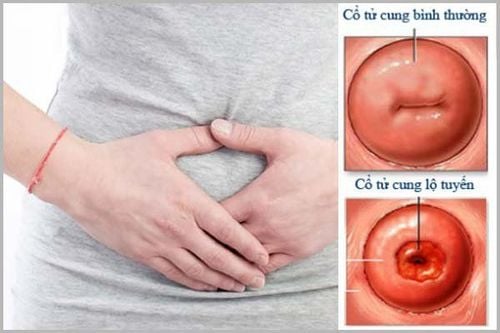This article is authored by Nguyen Nhu Thu Truc, MSc, MD - Obstetrician and Gynecologist - Obstetrics and Gynecology Department - Vinmec International General Hospital Nha Trang.
When a wife experiences significant morning sickness during pregnancy, many husbands display similar manifestations, such as anxiety, mood swings, nausea, weight gain, and body aches. This phenomenon in men is referred to as "couvade syndrome."
1. Couvade Syndrome
Couvade syndrome, or sympathetic pregnancy, is a conceptual framework describing a condition in which healthy men with pregnant wives experience pregnancy-related symptoms akin to morning sickness. Some studies suggest that this phenomenon is relatively common among men; however, it is not recognized as a psychological symptom or a distinct medical condition. Conversely, several studies propose that this syndrome arises from psychological factors, stress, or hormonal influences within the body.
2. Manifestations of Couvade Syndrome
Symptoms associated with couvade syndrome have been reported in various countries and organizations. Nonetheless, these manifestations do not present uniformly among all expectant fathers and typically occur during the first and third trimesters of their partner's pregnancy.
2.1. Restlessness and Anxiety
Couvade syndrome can lead even the most stoic husbands to experience sleepless nights, alongside symptoms such as heartburn and unusual fatigue during their partner's pregnancy. It appears that the "father-to-be" can share in the anxiety and restlessness experienced by the "mother-to-be" during this period.
To alleviate this symptom, it may be beneficial to seek the company of other "fathers," as many of them may be experiencing similar feelings of restlessness and will likely provide empathetic support. This approach can enhance one's well-being and improve symptom management.
2.2. Nausea and Vomiting

It may seem peculiar to encounter a man experiencing severe morning sickness, a symptom traditionally associated with pregnant women. However, this occurrence does indeed transpire in cases of couvade syndrome, although the etiology may be linked to an increase in female hormones, particularly estrogen, during pregnancy. The underlying cause, not solely attributable to estrogen, may be a result of the aforementioned anxiety and restlessness, or an inadvertent alteration in dietary patterns.
In reality, many expectant fathers tend to eat more to alleviate stress upon witnessing their partner's nausea during pregnancy. In such scenarios, it is advisable for these individuals to maintain regular physical activity, adhere to a balanced diet, and avoid resorting to alcohol or other substances as coping mechanisms.
2.3. Mood Swings
Mood swings are not exclusive to pregnant women; they can also manifest in husbands with pregnant wives. This phenomenon is primarily attributed to hormonal fluctuations within the body, with similar underlying causes identified in both genders, influenced by neurological activity.
The prospect of parenthood constitutes a significant event. The feelings associated with "impending fatherhood" can substantially alter the lives of husbands whose partners experience morning sickness. This may result in diminished sleep quality at night, heightened rumination, and an array of mixed emotions among individuals perceived as "family pillars." All of these concerns represent natural responses, and effectively reestablishing balance in one's life is essential. Men should recognize that achieving the status of the “ideal father” is unnecessary and that embracing the reality of their situation is crucial.
2.4. Changes in Sexual Desire
During pregnancy, women typically exhibit variations in sexual desire. However, husbands may experience similar fluctuations. Some men may find their partners' pregnant bodies appealing, while others might feel hesitant.
Certain men may experience enhanced libido at the thought of impending fatherhood, whereas others may feel fatigued by the prospect. In some cases, parental concerns regarding the potential risk of harm to the fetus may discourage sexual activity altogether. Nevertheless, for the majority of expectant couples, engaging in sexual relations poses minimal risk.
If pregnancy impacts sexual desire, couples should at least strive to maintain intimacy. Moreover, sexual interaction represents merely one avenue for expressing closeness and "rekindling" feelings; numerous other methods exist to foster intimacy without the necessity of sexual contact. The critical factor is to seek frequent connections with one’s partner and share genuine emotions, both inside and outside of the bedroom.
2.5. Weight Gain as a Sign of Couvade Syndrome in Males

While increased abdominal girth in women may indicate pregnancy, with weight gain becoming more pronounced in the later stages of gestation, studies have revealed that men may also experience an average weight increase of approximately 14 pounds (equivalent to 6 kg) throughout their partner's pregnancy. It is noted that males often consume more than usual when dining alongside their pregnant partners. However, a more likely contributor to this phenomenon is cortisol, commonly referred to as the "stress hormone," which is released in greater quantities during stressful situations, particularly when witnessing a partner experiencing severe nausea and vomiting of pregnancy (NVP). Cortisol modulates insulin levels and consequently influences blood glucose consumption. Thus, individuals may experience sensations of hunger despite the absence of true physiological need.
To mitigate the impact of these symptoms, males are encouraged to establish a balanced diet and prepare healthy snacks to manage episodes of perceived hunger. Additionally, increasing physical activity is recommended to facilitate weight loss and reduce stress levels.
2.6. Pain in Various Body Locations
Symptoms associated with Couvade syndrome may arise from identifiable causes, while others are less easily explicable. For instance, reports indicate that males frequently experience dental pain, lumbar discomfort, headaches, leg cramps, and other pain syndromes, as documented in various studies concerning sympathetic pregnancy phenomena. Researchers have yet to identify a conclusive explanation for the concurrent pain sensations; however, psychological factors may play a significant role. In such cases, individuals may require analgesics or psychological therapy, as determined by the treating physician.
3. Management of Couvade Syndrome in Males
Medical professionals and psychologists concur that couples should engage in regular discussions about their child's future to alleviate the stress associated with parental roles. Furthermore, healthcare providers encourage males to adopt a more positive perspective regarding their responsibilities during their partner's pregnancy.
An effective approach to managing sympathy pregnancy symptoms is to enhance the male partner's sense of importance by enrolling in specialized parenting classes or providing support during labor and postpartum. Notably, dedicating time to prepare for the birthing process, caring for the pregnant partner, and learning how to become a supportive father can help mitigate feelings of anxiety and fear.
Reference: Mayo Clinic
Please dial HOTLINE for more information or register for an appointment HERE. Download MyVinmec app to make appointments faster and to manage your bookings easily.
To arrange an appointment, please call HOTLINE or make your reservation directly HERE. You may also download the MyVinmec app to schedule appointments faster and manage your reservations more conveniently.








